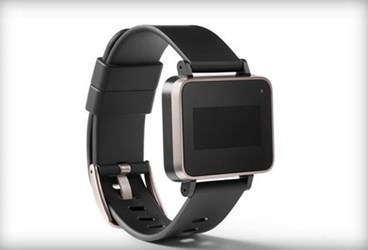Google Developing Wristband For Clinical Applications
By Jof Enriquez,
Follow me on Twitter @jofenriq

Google has unveiled a new wristband that would provide doctors with "minute-by-minute" clinical information from wearers of the device. Unlike similar wearables from rivals targeting the consumer market, Google's device is being designed to extend clinical and drug studies beyond trial sites.
Bloomberg reports that the experimental wristband can measure a wearer's vital signs, such as pulse, heart rhythm, and skin temperature. Additionally, the device can collect ambient information, such as light exposure and noise levels. Google says the wristband collects data continuously, allowing for real-time monitoring of a patient's clinical conditions between visits.
Many wearables developed by other companies have similar health-tracking capabilities, but Google says those consumer products are not rigorous enough for research purposes.
“Our intended use is for this to become a medical device that’s prescribed to patients or used for clinical trials,” said Andy Conrad, head of Google’s life sciences team, in an interview with Bloomberg. In particular, the device can extend existing trials beyond the walls of the laboratory by giving researchers "minute-by-minute" information on patients.
Conrad said Google currently is looking for a manufacturing partner for the device, which will be tested for accuracy by academic researchers and drug companies in clinical trials scheduled this summer. He said that Google will seek regulatory approval from both U.S. and European regulators for the device.
A constant stream of health information from Google's device would allow patients and doctors alike to catch early signs and symptoms of a disease before they worsen and result in costly hospitalizations. Wearing an always-on, extra-accurate device also would empower patients to take charge of their own health.
“I envision a day, in 20 or 30 years, where physicians give it to all patients,” Conrad told Bloomberg. “Prevention means all the time.”
The health-tracking wristband is being developed by the company's experimental research arm, Google X, the same division that developed a smart contact lens that continuously checks blood glucose levels in tears, among other projects.
Companies like Google, Apple and Samsung are out to prove that health-centric wearables are not novelty items, but devices that truly can benefit medical research.
Last year, Samsung introduced its Simband device, equipped with multiple biometric sensors that monitor heart rate, heart rhythm, blood pressure, temperature, and blood oxygen levels. Samsung says that data gleaned from the device will be made available to medical researchers.
Meanwhile, Apple looks committed to proving that its Apple Watch is more than a hyped-up consumer product with basic health-tracking features. For example, the tech giant reportedly is collaborating with MD Anderson Cancer Center at Cooper (New Jersey) to conduct a pilot cancer study wherein patients use Apple Watches to track their health data. These data, gathered by Apple Watches and iPhones then entered into Apple's ResearchKit healthcare data platform, would give researchers insights into diseases and potential cures.
